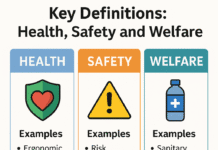
South Africa: Legal Rights of Workers and Employees
South Africa: Legal Rights of Workers and Employees : In a dynamic and ever-evolving job market, understanding the legal rights of workers and employees is crucial. South Africa, with its diverse workforce and complex labor landscape, has a comprehensive framework of laws and regulations designed to protect the rights of those engaged in employment. In this article, we will delve into the intricate world of labor laws in South Africa, providing you with a comprehensive understanding of what rights employees and workers are entitled to.
Introduction
South Africa has a robust legal framework that protects the rights of both employees and workers. These laws cover various aspects of employment, from contracts and wages to health and safety. Let’s explore these rights in detail.
Understanding Employment Contracts
Employment in South Africa typically begins with the signing of a contract between the employer and employee. This contract outlines the terms and conditions of employment, including job description, salary, and working hours.
Minimum Wage and Remuneration
South Africa has a national minimum wage that employers must adhere to. This wage is periodically reviewed and adjusted to ensure that workers receive fair compensation for their labor.
Working Hours and Overtime
Labor laws in South Africa regulate the maximum number of working hours per week and overtime pay for additional hours worked. It’s essential for both employers and employees to understand these regulations to avoid labor disputes.
Leave Entitlements
Employees in South Africa are entitled to various types of leave, including annual leave, sick leave, and family responsibility leave. These provisions are in place to ensure that employees can balance their work and personal lives.
Occupational Health and Safety
South African employers must prioritize the safety and well-being of their employees. Laws and regulations are in place to create a safe working environment and protect workers from occupational hazards.
Discrimination and Harassment Protections
South Africa has stringent laws that prohibit discrimination and harassment in the workplace. These laws ensure that all employees are treated fairly and respectfully, regardless of their background or characteristics.
Termination of Employment
Both employers and employees have rights and responsibilities when it comes to terminating employment contracts. Understanding the proper procedures and reasons for termination is vital to avoid legal complications.
Trade Unions and Collective Bargaining
Trade unions play a significant role in South Africa’s labor landscape. They negotiate on behalf of workers and ensure their rights are upheld during collective bargaining with employers.
Dispute Resolution Mechanisms
When conflicts arise between employers and employees, there are legal mechanisms in place for resolution. These include the Commission for Conciliation, Mediation, and Arbitration (CCMA) and labor courts.
Social Security and Benefits
Employees may be entitled to various social security benefits, such as unemployment insurance and retirement funds. Understanding these benefits is essential for financial planning.
Maternity and Paternity Leave
Expecting parents have specific rights to maternity and paternity leave, allowing them to care for their newborns without risking their employment status.
Rights of Temporary and Casual Workers
Temporary and casual workers enjoy legal protections, ensuring they receive fair treatment and benefits despite the nature of their employment.
Employee Privacy and Data Protection
South African laws also protect the privacy of employees, including the handling of their personal information by employers.
Conclusion
In conclusion, South Africa’s legal rights of workers and employees are extensive and vital for ensuring fair and just working conditions. Employers and employees should be aware of these rights to foster a harmonious work environment and avoid legal disputes.
Frequently Asked Questions (FAQs)
1. Can an employer terminate an employee without cause?
- No, South African labor laws require a valid reason for termination.
2. What is the current minimum wage in South Africa?
- The minimum wage is subject to change, but it is regularly reviewed and adjusted.
3. Are part-time workers entitled to leave benefits?
- Yes, part-time workers are entitled to leave benefits, but they may be prorated based on their working hours.
4. How can employees report workplace discrimination or harassment?
- Employees can report such incidents to their employer, the CCMA, or the labor court.
5. Are there specific laws protecting the rights of foreign workers in South Africa?
- Yes, South African labor laws apply to all workers, including foreign nationals, ensuring equal protection.
























